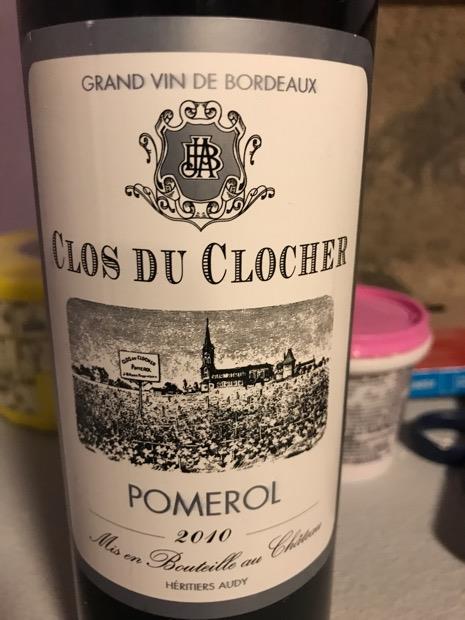Situated in the centre of Pomerol, one of Bordeaux’s most esteemed appellations, Clos du Clocher is a name that frequently goes unnoticed yet merits much greater recognition. This estate has quietly established a reputation among discriminating collectors and sommeliers due to its strong regional origins, distinctive terroir, and dedication to producing expressive, age-worthy wines.
We’ll examine what makes Clos du Clocher so alluring in this in-depth assessment, including its fascinating history, devoted staff, superb vineyards, and sophisticated wine collection. Clos du Clocher deserves a place in your cellar, regardless of whether you’re a wine expert or a connoisseur hoping to add more Bordeaux to your collection.
The Winery’s Past
Jean-Baptiste Audy, a visionary wine trader from Libourne, established Clos du Clocher in 1924. The name Clos du Clocher (Enclosure of the Bell Tower) comes from Audy, who saw potential in the blue clay soils of the little plateau and started accumulating parcels of land close to the Pomerol church when the city was still dominated by its Left Bank brethren.

The Audy family continued to oversee the estate over the years, progressively adding new vineyard parcels and improving its viticultural and winemaking methods. With a devoted following of collectors and sommeliers who value its subtle power and elegance, the estate achieved a new level of finesse in the 1980s and 1990s and now stands firmly among the most prestigious names in Pomerol.
The People Behind the Wines
The Raymond family currently owns and operates Clos du Clocher in addition to other Right Bank estates like Château Bonalgue and Château Monregard La Croix. Michel Rolland, one of Bordeaux’s most prominent oenologists and a consultant to world-class estates, is in charge of the estate. His participation guarantees that Clos du Clocher strikes a balance between traditional Pomerol spirit and contemporary accuracy.
Patrice Lévêque, a seasoned vigneron who is passionate about capturing the subtleties of every vintage and vineyard parcel, is in charge of winemaking at Clos du Clocher. The group is renowned for its careful vineyard care, small-lot vinification, and delicate extraction methods, all of which highlight the estate’s distinctive style: sophisticated, nuanced, and age-worthy Merlot-based wines with a strong sense of place.
Vineyards & Terroir
The 5.9 hectares of vines at Clos du Clocher are situated in the centre of Pomerol, near esteemed neighbours Trotanoy, La Fleur-Pétrus, and Vieux Château Certan. The iron-rich clay and gravel soils of the plateau are advantageous to the vineyards and are especially well-suited to Merlot, the estate’s predominant grape.
The vineyard’s core is composed of blue clay, or crasse de fer, which is renowned for creating wines with a rich texture, structure, and remarkable ageing potential. Additionally, there are parcels with sandy topsoils and gravel, which give the blend elegance and aromatic lift.
Grape Varieties:
Depending on the parcel and vintage, the vineyard is planted to roughly 70–80% Merlot and 20–30% Cabernet Franc.
Sustainable Practices:
The Clos du Clocher team uses little intervention in the cellar, meticulous canopy management, and hand harvesting as part of their sustainable viticulture. Recent initiatives to improve vineyard expression and lessen environmental effects include precision viticulture and soil health monitoring.
The estate’s distinctive terroir and winemaking methodology are highlighted in Clos du Clocher’s concise and expressive wine selection.
The Clocher Clocher (Grand Vin)
Usually composed of 70–80% Merlot and 20–30% Cabernet Franc.
Winemaking:
Fermentation in stainless steel tanks with temperature control and mild extraction, then ageing in 50–60% new French oak barrels for 16–18 months.
Style:
Dark cherry fruit, violets, truffle, and graphite on the nose, with a rich, velvety, and structured finish. The tannins are strong but refined, and the palate is fresh yet full-bodied.
Depending on the vintage, ageing potential ranges from 15 to 25 years.
Bonalgue Chateau (sister property)
Château Bonalgue, owned by the same family, is a good Pomerol wine worth trying, especially for earlier consumption, even if it is not marketed under the Clos du Clocher name.
Clos du Clocher Second Wine (issued on occasion)
The estate may make a second wine in lower vintages or to preserve the Grand Vin’s quality, providing a more approachable version of Pomerol elegance at a more affordable price.